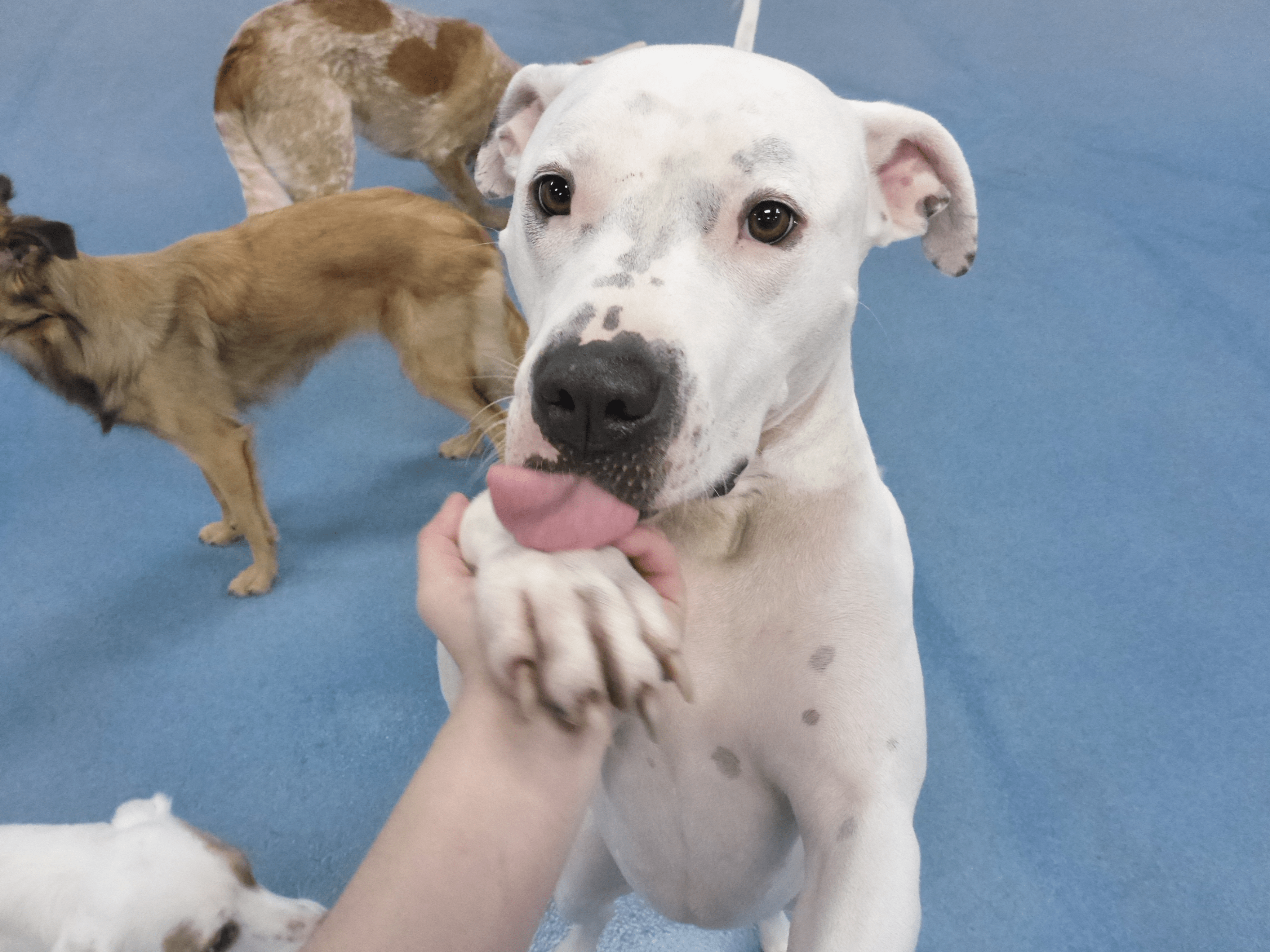How to Deal With Behavioral Issues In Dogs


Every dog owner is bound to face the challenge of dealing with behavioral issues. It can be a bark too loud, a tug too strong, or an unexpected mess in the living room.
Addressing these concerns is paramount, not just for peace at home, but for the health and happiness of your furry friend.
Here, we’ll discuss the nuances of dog behavior, and how places like 24 Hour Dog Daycare can be transformative in this journey.
Understanding Common Dog Behavioral Issues
Each dog, with its unique personality, has its quirks. Yet, there’s a universality in some behaviors they exhibit.
If your dog is exhibiting behavioral issues, it’s your responsibility to understand them and why they’re happening.
You may need to get some help in dealing with the dog’s issues, and that’s okay, but try to understand them first.
Aggression and Leash Reactivity
This might conjure up an image of a big, menacing dog, but tiny terriers can be just as reactive.
This behavior is rooted in fear, territoriality, or past trauma. Recognizing early warning signs, like growling or raised fur, is crucial.
Using positive reinforcement, like treats or praises, when they encounter their triggers, will change their perspective over time.
Separation Anxiety

The heart-wrenching cries, the chewed-up shoes – these are telltale signs. Some breeds are more predisposed to it, while others develop it due to sudden changes in routine.
Addressing it requires patience. Gradually increasing alone time and providing toys or treats as distractions is beneficial.
Excessive Barking and Destructive Behavior
Dogs often bark when they feel bored or uneasy. Determining the cause, whether it’s a lack of exercise, attention-seeking, or even alerting you to something, will guide the solution.
Providing interactive toys, adequate physical activity, or training commands like ‘quiet’ also helps.
The Role of Dog Boarding in Addressing Behavioral Problems
Not just a solution for your vacation days, dog boarding is a game-changer for addressing behavioral issues in dogs.
Professional dog boarders have seen it all when it comes to dog behavior; so they will be well-equipped to deal with your dog’s behavior.
Additionally, they may be able to help you understand behavioral triggers as well as solutions to improve your dog’s behavior.
Benefits of Professional Dog Boarding
Beyond the kennels and food bowls, establishments like ours offer comprehensive care. Our staff is trained to understand the intricacies of dog behavior. They ensure a structured environment that’s conducive to learning.
Also, the opportunity for dogs to interact will help them understand social cues better, reducing aggressive tendencies.
Creating a Safe and Supportive Space for Dogs
A safe space isn’t just a physical sanctuary; it’s an environment where dogs feel emotionally secure. Routine, consistency, and positive reinforcement form the pillars of such a space.
Often, behavioral issues in dogs can be a sign that they do not feel safe or stable in their space. This can depend upon the dog.
Don’t assume that a safe and supportive environment that worked for one dog will work perfectly for another.
Dogs are individuals just like humans, and taking the time to understand what they need to feel safe can help improve their behavior.
Choosing the Right Dog Boarding Facility
Researching Potential Boarding Facilities
Look for testimonials, especially from owners of dogs with similar behavioral issues in dogs. Understand the facility’s approach to addressing these concerns. Evaluate the amenities they offer – from open play areas to individual care sessions.
Visiting the Boarding Facility
A visit can be illuminating. Notice the cleanliness, safety measures, and the demeanor of the staff. Watch how they handle the dogs. Is there a sense of patience, understanding, and genuine care? These observations are instrumental in making your decision.
Communicating Your Dog’s Behavioral Issues to the Boarding Staff
Think of this as a detailed handover. The more we know, the better we can help.
Highlight not just the issues, but also the instances when your dog behaved well. Understanding what works for your pet is as important as knowing what doesn’t.
Our boarding staff have looked after hundreds of dogs, and we’ve seen a range of behaviors. Help us understand how best to look after your dog by providing as much information as possible.
Collaborating with the Boarding Staff on Behavioral Goals

By pooling our expertise and your understanding of your pet, we can chart out a plan tailored for success.
Ultimately, it’s a collaborative journey towards having a confident and well-behaved dog.
Ensuring a Smooth Transition During Boarding
Our aim is to replicate the warmth and security of home, ensuring your pet transitions smoothly. Regular updates, familiar toys, or even a piece of your clothing can provide comfort.
Daily Routine and Enrichment Activities
Regular feeding, playtimes, and rest sessions ensure they feel secure. Furthermore, activities designed to stimulate them mentally and physically will channel their energy positively.
Learn more about the importance of enrichment activities for dogs.
Monitoring Progress and Continued Training

Every day, we’ll monitor and document your dog’s behavior. This data-driven approach ensures that we understand patterns, triggers, and positive influencers.
When your pet returns home, continuing the strategies and routines we recommend will help consolidate the gains made.
Real-Life Experiences: Testimonials from Dog Owners
You likely want to see what other dog owners have thought about dog daycare. In which case, reading testimonials of other fur parents can be a great way to find out.
We’ve seen dogs evolve from being anxious and aggressive to confident and playful. These success stories highlight the potential of professional dog boarding.
Setting the Standard for Dog Behavior

To wrap up, understanding and addressing behavioral issues in dogs is a journey – one of patience, understanding, and consistent effort.
Dog boarding facilities like ours, equipped with expertise and infrastructure, are powerful allies in this journey. We prioritize the well-being of dogs in our care, with spacious play areas and private suites. Our trained staff is attentive to every dog’s body language and signals, ensuring a safe and happy environment.
Need a place for dog boarding? Make a reservation with us today.
Frequently Asked Questions (FAQs)
Can dog boarding really help with my dog’s behavioral issues?
Yes, professional dog boarding facilities play a significant role in addressing behavioral problems. They offer a structured environment, trained staff, and socialization opportunities, which will positively impact your dog’s behavior.
How do I choose the right dog boarding facility for my dog’s specific behavioral needs?
When selecting a boarding facility, consider factors like reviews, recommendations, facility amenities, and cleanliness. Additionally, visit the facility in person to assess its environment and interact with staff to ensure they understand and can accommodate your dog’s behavioral requirements.
Will my dog’s progress in behavior improvement continue after returning home from the boarding facility?
Yes, consistent reinforcement is essential for continued behavior improvement. A good boarding facility will work with you to develop a customized behavior plan and provide regular updates on your dog’s progress. It’s essential to reinforce training techniques at home to maintain the positive changes achieved during boarding.
What are some signs that my dog might benefit from a stay at a professional dog boarding facility for behavioral issues?
When your dog consistently exhibits disruptive or potentially harmful behaviors, it might be time to consider a professional boarding facility.
Some signs include:
- If your dog becomes extremely stressed or destructive every time you leave, resulting in damaged property or self-harm.
- If your dog shows intense aggression towards other animals or people, especially if it’s escalating.
- You might have tried various techniques or even hired trainers, but there’s little progress.
How long will my dog need to stay at the boarding facility to see an improvement in behavior?
The duration of a dog’s stay varies widely based on the individual dog and the nature of its behavioral issues.
Here are some general guidelines:
- 1-2 weeks: Suitable for minor issues or just to introduce your dog to a new environment, providing them with basic training and socialization.
- 3-6 weeks: This is a more immersive experience for dogs with moderate behavioral challenges. It allows time for more intensive training and for the dog to internalize new behaviors.
- 2-3 months or more: For severe behavioral challenges, a longer stay may be necessary. This gives the dog ample time to unlearn negative behaviors and establish positive ones under consistent guidance.
Remember that the boarding facility isn’t a “fix-it-and-forget-it” solution. The progress made during boarding should be reinforced at home to ensure long-lasting positive behavioral change.


